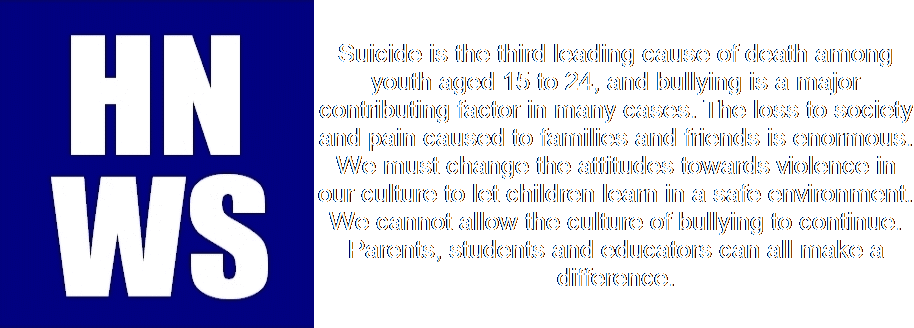Depression and suicide are only two of the possible results of a child being bullied severely. Another way some kids respond is to turn to bullying other kids. Every time this happens, the cycle of bullying is strengthened. In today's world, the number of virtual bystanders amplifies the victims' pain and shame to levels uncommon before the social media explosion changed our culture. We must find a way to discourage kids from wanting to join in on the abuse.
The dynamics of the bully-victim-bystander relationship are well known. As far back as the 90's, (Tremlow, Sacco, Williams, 1996), and even earlier, researchers had identified and defined the processes involved in the development of this complex problem. It has been found, for example, that even though when asked by adults about their feelings for victims, most kids express a desire to help, but when they are interacting without adults present kids behave entirely differently. Paradoxically, victims are frequently ridiculed by bystanders as weak even though they still see bullying as wrong, according to the same study.
Vivian Diller, ( Ph.D. Psychologist and author, 'Face It' ), writing for Huffington Post in an insightful opinion piece, asks the question, "who should intervene... ?" It seems to me that the answer is contained in the second part of her question - "bystanders, parents, [and] school administrators". We can't create a world of perfect parents, and schools are beginning to try to find ways to combat the problem on school property. There remains a much larger problem to fix when it comes to bystanders, however.
Most kids know the right way to behave, but impulsive behaviour is commonly a normal part of growing up. Nobody wants to stand out in a crowd by speaking out, since that could make them a target. The thing to realize is that once a popular kid speaks up, the flood gates of empathy defending the victim can often open wide. Empathy still exists in our kids, but cultural phenomena are suppressing their ability to express it. No matter how often we tell kids it's wrong to stand by and do nothing, it still happens every day. Every day, more kids are singled out for attacks. Every day, more kids see bullies winning, and decide, "If it works for the bully, it will work for me". Our society doesn't help matters by glorifying unrealistic perfection and promoting shallow, overly materialistic goals, which only serve to further exclude kids who don't fit the mold.
I believe Dr. Diller is absolutely correct in suggesting that we must concentrate our efforts on changing kids' behaviour, rather than trying to get more kids to "fit in". Most bullying today is led by the same kind of kids that have always been the ringleaders, the difference is the ease with which the number of bystanders can escalate to vast numbers. Bystanders are mostly average, good kids, not natural bullies. The near universal availability and use of social media has simply given teens the tools to join in anonymously and quickly, which plays into the frequently impulsive nature of childhood. Regular kids become part-time bullies, but they believe they are "just joking".
Dr. Diller also comments on pop culture and it's utterly unrealistic imagery. Her focus is dead on, in my opinion. By saturating our kids lives with overly idealized imagery and showing aggressively competitive behaviour being rewarded, we're warping the minds of a generation. So we set the social popularity bar unrealistically high, while simultaneously marketing a hyper-competitive culture to young impressionable minds. Parents that don't understand this are a serious part of the problem. Somehow, we must find a way to change our culture, giving kids higher ideals to aspire to than winning at all costs, collecting "bling" and believing that popularity is the only goal in life.
Many adults today don't seem to understand the difference that social media has made to the world of victims. Teens are very much aware of the vast audience and permanent nature of online abuse aimed at them, and this causes an enormous increase in their anxiety. The social stakes are very high because of the emphasis we put on popularity as a indicator of social status. One thing Dr Diller notes that unfortunately hasn't changed is the notion that "tattling" is only going to make things worse. I'm not sure how we can change that attitude, but we must. It won't be easy because the idea has been around as long as bullying, maybe even longer.
So what can we do in the mean time? Plenty. While it will never be a perfect world out there, and anti-social behavior will always exist, I believe it is possible to lessen the frequency and severity of bullying in general. This is because although bullies are created, not born that way, there is more than one way to create one. We may not be able to make a world of perfect parents and give all kids perfect childhoods or flawless genetics, but we can do something about the bystanders who feel too scared to speak out, and victims who become violent as a response to being victimized. We can stop the cycle before it creates more violence. As Dr. Diller states, "such behavior begins right at home."
